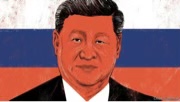(Thread IKs:
fart simpson)
|
no they keep doing things like doing worse and worse profit sharing models that the cadre try to stop and are shown to be small minded antagonists. It seems more like a period piece.
|
|
|
|

|
| # ? May 27, 2024 08:27 |
|
Tankbuster posted:I am watching the show that gave us the current thread title and it seems pretty pro capitalism to me. Can you explain which part so I can correct you?
|
|
|
|
Tankbuster posted:no they keep doing things like doing worse and worse profit sharing models that the cadre try to stop and are shown to be small minded antagonists. It seems more like a period piece. It's completely a period piece, I'm not sure what you thought it was? The unequal profit sharing can certainly be criticised, but the managers aren't entitled to it by investing their own capital. The capital belongs to the collective, and they can be dismissed and replaced at any point by Dong Bao, who can himself be replaced as party secretary. I have no idea what happens after season 1. The version on youtube has unintelligible subtitles, and I can only find good subtitles online attached to the godawful cantonese dub.
|
|
|
|
Orange Devil posted:Can you explain which part so I can correct you? the entire tiny-twink-in-the-city arc is him becoming a grindset guru. mossyfisk posted:It's completely a period piece, I'm not sure what you thought it was? I started watching the show because it was supposed to show how the chinese cultural products are now lapping the US. I could just rewatch the eight hundred or the korean war movies.
|
|
|
|
Orange Devil posted:Can it write an article about "China good, but at what cost?". China's rapid economic growth and development have come with both benefits and costs. On the positive side, it has lifted millions out of poverty, become a global economic powerhouse, and made significant technological advancements. However, there are concerns related to human rights issues, environmental degradation, and geopolitical tensions. Evaluating whether the costs outweigh the benefits is a complex and subjective matter, often depending on one's perspective and values. It's essential to consider both sides of the equation when assessing China's trajectory.
|
|
|
|
stop fizzy it’s causing damage
|
|
|
|
In conclusion, China is a land of contrasts.
|
|
|
|
AFancyQuestionMark posted:I read Search for Modern China, it was very solid imo, though tha author's "modern=western capitalist" bias starts showing towards the end a bit. But overall, I found that CCP came across very positively in this book. stephenthinkpad posted:Check out this lection, get the free trail for 2 weeks Thank you very much. Also from what I've seen what would be the threads general read on Sun Yat-Sen?
|
|
|
|
https://twitter.com/robert_spalding/status/1701024088532144383quote:short term decisions tend to fail in the long term air force generals lol
|
|
|
|
Lol American technology (websites that let you book hotels) Talent (mostly Chinese engineers and scientists) And capital (parasites)
|
|
|
|
the juicero will make the world tremble
|
|
|
|
if only the PRC hadn't been cultivating talent for a generation and building the industrial capacity to efficiently utilize it.
|
|
|
|
fart simpson posted:at my company they don’t even let us install the beta versions of our own apps on our company issued phones how do you test them
|
|
|
|
is this even actually true im never sure how anyone actually defines these things aside from like how many social media posts in this country in english can i find with obviously gay people in them
|
|
|
|
Josef bugman posted:Thank you very much. Also from what I've seen what would be the threads general read on Sun Yat-Sen? A very good revolutionary man and tireless campaigner, not a military man nor a particular shrewd politician. If he lived longer he would have been pushed out by Chuang Kai Shek. A worthy founding father of both modern China. The Russian revolution happened around the same time of the overthrowing of the Qing dynasty, but the Soviet had harder leaders because it faced harsher external environments than the Republic of China.
|
|
|
|
Some Guy TT posted:is this even actually true im never sure how anyone actually defines these things aside from like how many social media posts in this country in english can i find with obviously gay people in them americans can't stop applying their stupid culture war poo poo to everything else
|
|
|
|
DD Geopolitics posted:
|
|
|
|
C-SPAM > [Asia/Oceania] China and India ‚unfortunately, have low intellectual potential
|
|
|
|
Podolyak posted:.. China is not being dragged into the conflict. China is no more in the conflict than India is. More like the US and NATO countries are getting stuck in the conflict with endless obligation of aid supplies. At the beginning of the war there were attempts from Biden to brand China and Russia together, but it didn't work.
|
|
|
|
without constant war a large bit of the american arms industry would be as blatantly useless as it really is. nato needs to keep conflicts churning because there's no exit strategy from humanity hanging from a cross of iron (never has been)
|
|
|
|
https://twitter.com/Tarhuwa/status/1701669535861072232
|
|
|
|
goa reunited with portugal
|
|
|
|
It really sucks hiwneven anti-colonialism has been bent to serve the powers of colonialism
|
|
|
|
naxal union doesn't have naxalbari.
|
|
|
|
Something I've come to realize is that, even outside of people like this (I see it in science academia sometimes, for example), I think there's a reflexive American/European need for China to have some sort of deep cultural inferiority that renders it incapable of "innovation." I think the reason for it is that, if you just look at the basic facts, it's extremely obvious that China has advantages in pretty much every way you can think of - huge population, functional government that can actual competently maintain/expand infrastructure, huge geographical size and natural resources, etc. So people need to come up with something - anything - that allows them to continue living under the illusion that American/European dominance will continue into the future. edit: And also the fact that any American who works in some tech-related field is fully aware of how many Chinese people there are with those skills, so they have to tell themselves that they're missing some "spark" that Ytlaya has issued a correction as of 22:29 on Sep 12, 2023 |
|
|
|
true innovation is having a dozen different food delivery apps
|
|
|
|
Ytlaya posted:Something I've come to realize is that, even outside of people like this (I see it in science academia sometimes, for example), I think there's a reflexive American/European need for China to have some sort of deep cultural inferiority that renders it incapable of "innovation." white supremacy important to imperialism you say?
|
|
|
|
there are a bunch of communist parties that officially denounce the CPC but are proud of their ongoing relationship with the CPV and I’m not sure how that works. like if you consider the CPC no longer socialist than how is the CPV still socialist?
|
|
|
|
gonna have to keep the spirit of the CPSU going brother.
|
|
|
|
Danann posted:https://twitter.com/robert_spalding/status/1701024088532144383 isn't literally every country resource-constrained lol 'China's economy is dependent on things which actually physically exist, unlike the American economy which runs entirely on wishful thinking, this makes us clearly the stronger of the two'
|
|
|
|
Mister Bates posted:isn't literally every country resource-constrained lol as kashkari put it, there's an infinite amount of money at the federal reserve, so as long as we keep pumping it into the economy to fund said wishful thinking our future is limitless hang on I'm being handed a note
|
|
|
|
KomradeX posted:It really sucks hiwneven anti-colonialism has been bent to serve the powers of colonialism The Kaiser sent Lenin to St. Petersburg
|
|
|
|
FrancisFukyomama posted:there are a bunch of communist parties that officially denounce the CPC but are proud of their ongoing relationship with the CPV and I’m not sure how that works. like if you consider the CPC no longer socialist than how is the CPV still socialist? Sino-Soviet split
|
|
|
|
Mister Bates posted:isn't literally every country resource-constrained lol the US, famously not resourced constrainted during early covid
|
|
|
|
Mister Bates posted:isn't literally every country resource-constrained lol The USA has no resource constraints because it has the power to
|
|
|
|
Mister Bates posted:isn't literally every country resource-constrained lol people are very selective about interpreting that. for the most part they are talking about trade imbalances of food and energy, and yeah, america exports food and energy while china imports them. the impact this sort of thing has on countries when terms of trade shift rapidly is very significant. but looking at aggregates like this is misleading; china's food production used to be self-reliant and has increased in output over time, and what is driving the increasing "dependence" on imports is the increasing fraction of calories from meat as incomes rise, necessitating massive imports of livestock feed (from e.g. brazil). similarly, china imports a lot of oil these days, and also has way more cars and trucks on the road than twenty years ago. so the present day trade imbalance in these sectors does not imply that the economy is unable to adjust to changes in the terms of trade (the way that, e.g., the uk has been unable to cope with increases in prices for those imports and is now going under as a society for lack of options to escape their predicament). substituting more plant-based proteins and cultured meats for livestock, and more nevs for ice vehicles, to bring net consumption of those commodity inputs down to early 2000s levels, is by no means an impossible feat. the chinese government is also much more capable than other countries' of mobilizing short-term sacrifices of the form "eat more vegetables and bike everywhere like your parents did" for a few months while adjustments occur. finally, with russia backed into a corner for trade partners with advanced technology, it's not like it's possible to politically cut off china from their resource inputs, which can be used to substitute for what is currently imported across the ocean it's all very goofy, but hopefully someone invents the perfect substitute pork stuffing for baozi and jiaozi and the nuclear + renewables rollout keeps on keeping on, and by the end of the decade people will give up on this silly bullshit e: also i guess it would maybe make the world end slower if that happened this allusion meant has issued a correction as of 01:48 on Sep 13, 2023 |
|
|
|
Ardennes posted:Sino-Soviet split I think the Soviets lost that one
|
|
|
|
Bad news for China - Under Xi Jinping's hardline approach, China is faced with a real estate crisis, record high youth unemployment, and massive debts at the local government level https://www.wsj.com/podcasts/opinion-free-expression/the-china-crisis-how-bad-is-it/bf80e144-f5d6-4b59-906f-3557399edbd0 The China Crisis: How Bad is it? THURSDAY, SEPTEMBER 7, 2023 FULL TRANSCRIPT This transcript was prepared by a transcription service. This version may not be in its final form and may be updated. Speaker 1: From the opinion pages of the Wall Street Journal, this is Free Expression, with Gerry Baker. Gerry Baker: Hello and welcome to Free Expression, from the Wall Street Journal opinion page. I'm Gerry Baker, editor at large of the journal. Thanks very much for joining us. If you're not already a subscriber, please do sign up at Apple's Podcast, Spotify, or wherever you get your podcasts. This week, China's crisis. How serious are the economic woes facing the People's Republic of China? Over the summer, the scale of the challenges facing Xi Jinping and the ruling Communist Party become dramatically clearer. China, remember, we're supposed to bounce back this year after its disastrously restrictive zero COVID lockdown policy, was finally lifted at the end of last year, but the recovery is really nowhere in sight. Manufacturing activities are declining, exports are falling, home prices are down, consumer prices have dropped in deflation, youth unemployment has reached record highs, financial instability stalks the country, overbuilt real estate has produced the collapse of at least one major real estate company, and is bringing down another. Massive debts at local government level are making matters worse. Things look so grim that the parties have recently deep-sixed formally publicly available economic data. So what's going on? Is this merely a glitch in China's long progression towards what many people have long argued would be its global economic ascendancy, or is there something more serious afoot? Are the structural weaknesses and contradictions in its Communist Party's led economic model now laid bare, with really serious long-term economic consequences? What does it all mean for the rest of us, particularly for US/China relations and the strategic challenge that China poses? Well, to talk about all this, this week I'm delighted to say I have with me, George Magnus. George is a longtime, very experienced and widely regarded observer of and commentator on China. He was formerly chief economist at UBS. He now writes and speaks widely as an analyst at the China Center at the University of Oxford, and a scholar at SOAS, the School of Oriental and African Studies in London. He's written several books, including one published just a few years ago, which looks both prescient and extremely germane to the discussion we're having. It's called Red Flags, Why Xi's China is in Jeopardy. And George Magnus joins me now. George, thanks very much indeed for joining Free Expression. George Magnus: Yeah, thank you for having me. Gerry Baker: We're looking at the state of China. There's obviously been a lot of focus on China's economy in the last couple of months. You've written widely about it, others have too. I want to get an overall sense from you on how bad things are right now. We came into this year, China had finally abandoned what seemed, everybody seemed to think was a fairly disastrous zero COVID policy and the restrictions were lifted. I think we all expected, as other economies came back after they lifted their COVID restrictions, China particularly, given the severity of the restrictions would come back strongly. Yet the slew of data we've seen, particularly over the last few months, whether it's manufacturing, whether it's unemployment, whether it's the overall level of demand, whether it's things like exports and others, seem to suggest really quite pronounced weakness. What's going on? Why is China not bouncing back as we expected? George Magnus: Well, that's a good question. I'm sure there are a lot of people in Communist Party headquarters in Beijing who are looking at the same question. It's been a big disappointment because we thought, and I'm sure that Chinese officials thought, that once people would be allowed to congregate and mixed freely again, as we found out ourselves, there would be this kind of revenge consumption which took place as a reaction to people being shut down and forcibly restricted in residential compounds and so on, so forth. And we did see a bit of a flurry of consumption spending in restaurants, eating out, transportation, theme parks, leisure and hospitality in the beginning of the year, but it didn't touch the big areas that really account for the elephant really of consumer spending, which is housing and automobiles. And I think that this overlay of the property bust in China, which began really three years ago, I mean, it's sometimes been a bit sort of slow motion, but it began in 2020 with the imposition of balance sheet constraints and regulations on property developers. This has really been a kind of a huge downer on the Chinese economy and on the confidence of the Chinese middle class. It's not the only thing that's been disappointing, but it certainly accounts for a lot of the reasons for China's disappointing performance this year. Gerry Baker: Let's talk about that, the problems in the real estate sector. We've seen, whatever it was, last year, a couple of years ago, we had the collapse of Evergrande, the big developer. This year, the name that's been on everybody's lips is Country Garden. There are rumors and stories about others. Again, give us some background on that. The story generally that we read is that there was massive overbuilding, hear about these ghost cities in China, that's been a story for at least a decade. Is this just the accumulation of many, many years of essentially misdirected investment, over investment in the real estate sector, building up this huge excess, this huge glut of real estate, people taking out mortgages, hear these stories sort of sight unseen buying these places which end up never being built. Tell us what's been going on in the real estate sector and what's at the root of the problem there? George Magnus: Sure. I mean, I don't want to go too deeply into sort of way back history, but I think it's important to have some kind of appreciation for really how we came here. So obviously from the moment that or from the time when China transformed its housing welfare system into a proper residential housing market, I mean, the boom kind of set in. And from roughly the financial crisis onwards, so around about 2008, 2009, I mean, it really picked up a lot of momentum, aided and abetted by this big shift that took place in China's development model towards a kind of reliance on credit for housing and for infrastructure. And this all really began to come to, well, it didn't come to a grinding halt originally, but the whole kind of de-leveraging campaign that started off in 2017, 2018 really has had a deleterious effect, not just on the whole kind of credit system and the liabilities of financial institutions, but it's kind of shifted everything away from concern about how do banks fund themselves and what's the risk of contagion, which is something that we worried about sort of six, seven years ago, towards assets and the fact that property prices and property transactions had been artificially bolstered every time the Chinese economy got into a little bit of trouble. And so now finally, when I say now, I mean, within the last few years, Xi Jinping has basically professed this kind of mantra about housing is for living in not for speculation. And the government has really bitten the bullet as it were. I mean, I don't think they're doing this because they think it's a good idea. I think they just are frightened about the instability of rampant credit growth in the economy. But actually the fall guy, so to speak, has really been the property market, which has been, as I said, bolstered for far too long and which now is oozing excess inventory, particularly in towns and cities that most tourists never go to. These are the smaller, medium-sized cities, tier three, tier four, they call them, as administrative kind of categories, where there's a huge and chronic excess supply. So not necessarily Shenzhen or Beijing or Shanghai, but a lot of other places where prices are falling pretty quickly and where transactions volumes have collapsed. Gerry Baker: Some people have said, compared what China's going through right now, and these analysis are always imperfect, but I want to get your sense of the scale of this and the significance of this, but some people have compared it to the Lehman Brothers collapse and the financial crisis obviously that followed that in the United States and the West in 2008. Again, there are so many differences between the economy and not least obviously the role of government, the way the government can do things in China that governments in the West and democracies can't do. Is it on that kind of a scale, the problems we're seeing in the real estate sector, is it that kind of a crisis for them? George Magnus: Yes. I mean, the similarity of course is that property is at the center of instability that's kind of rampant in the economy, but I think beyond that, the dissimilarities are probably much greater. So when Lehman's happened and in the wake of the kind of property bust in the United States, the real estate sector was what, I mean, broadly defined, maybe eight, 9% of GDP. I mean, residential investment was probably about five or 6% of GDP and put a bit onto that for housing services and commodities and so on. So perhaps even a little bit bigger than that. But according to this now and well digested research paper that was produced by Ken Rogoff and a Chinese associate of his a couple of years ago, I mean, China's real estate sector broadly defined, is about 25, 26% of GDP. So that's bigger than Spain's was in 2007, 2006. And so losing the momentum in that sector and the demographics are terrible for China's household formation in the future and for first time buyers. So this chronic excess capacity is going to be with China for many years to come, I think, even if sales were to pick up to a moderate level in the next couple of years. But that's one dissimilarity is scale. The second dissimilarity is no big Chinese banks are going to be allowed to go bust in the way that Lehman's was. And so I think the likelihood of there being a major financial blowup in China, the like of which we experienced in 2007, 2008, I think it's not small, like infinitesimally small, but I think it's unlikely. But that doesn't mean that it's a kind of a free lunch for China. I mean, the economy and the people will pay the price of this misallocation of capital, but in a different way. Gerry Baker: I do want to talk about the extent to which these are structural problems in the Chinese economy, as opposed to even what sounds like you're describing almost sort of a classic bubble, even though one on a very large scale, given the size of the real estate sector in the Chinese economy. But I do want to get onto that, but just very quickly, when we've seen periods of weakness in China in the past and we have seen them repeatedly over the last 10 or 15 years and including some problems in the financial sector, there's usually been a response. Central government's usually pretty reliable, big fiscal stimulus. Local governments can help out too. The People's Bank of China weighs in with easing of policy. We don't seem to be seeing that this time. So the expected stimulus response that you do get, and again, we're used to it again in the United States and in Britain elsewhere too, when you see these kinds of economic weaknesses, the Fed cuts interest rates, maybe we get a big fiscal stimulus, we don't seem to be getting that this time. What's going on there? George Magnus: Well, we're getting something from the government because they can't sit idly by and sit on their hands and just allow this just to unfold, because the consequences of an unconstrained housing collapse I think could be disastrous. So we are seeing some reaction, but it's not the bazooka type of stimulus reaction that we have seen in the past. And that's because I think the government realizes that if they were to do this, they would actually exacerbate misallocation of capital and the eventual costs which would have to be paid in terms of losses and possibly even to financial stability. Whilst we've all been fritting about all these economic numbers that you described earlier, during the summer, I mean, mortgage rates have come down for both new mortgage owners and existing mortgage owners. There have been attempts to stoke up the stock market by cutting trading fees, for example, and by talking the market up, I mean, not always successfully. The government really thinks it's got a consumer confidence problem. So they've relaxed personal income tax allowances for families that have children or with elderly care in the family, and tried to stabilize the decline in the renminbi. So all of these things actually say that the government does know that there's a problem that needs to be addressed. And they've also accelerated local government borrowing. Local governments are in a terrible financial situation. They can't really afford, many of them, to finance the kind of social spending which they are responsible for. So many of these things are happening, and we may see some further measures during the next few weeks if rumors are correct. But we're not going to see, I don't think, this kind of heavy duty credit creation, bazooka type infrastructure stimulus, which have characterized past episodes of economic weakness. And I think that's because the government is scared really about propagating greater instability in the economy and in the financial system. Gerry Baker: You talked about local governments, and again, that's been a notable feature of this current problems. Why are local governments so financially strapped? Is that because they've been hit hard by this real estate problems in the form of lower revenues and what's going on with local governments? George Magnus: The proximate reason for the dire straits of local governments, and then I think people need to understand the significant role that local governments play in China, they account for the lion's share of the provision of public goods and services, but only a relatively small share of total taxed revenue. So most of the tax revenues go to Beijing, most of the spending is done by local governments. And so there is this kind of system which they have, which is not exactly like the US system of revenue sharing, but actually the Beijing government does play a role in trying to sort of even out these kinds of inconsistencies. But the proximate reason that they're in trouble is because on average, about a third of their revenues come from land sale revenues and because property prices are weak and land auctions have been canceled or have failed, they're critically short of revenues to supply or to finance the public goods and services they're supposed to supply. But the fundamental and systemic problem that China has is this severe imbalance between the spending and revenue responsibilities of local versus central governments. I mean, the United States had this kind of problem in the 19th century and it triggered at least three financial crises that I'm aware of, and eventually had to be solved or sorted out by rule of law and the appropriate responsibility defined in law. But China doesn't really have this, and Beijing likes to keep local governments on a bit of a tight leash, but something is going to have to change there because the status quo is not sustainable really. Gerry Baker: How should we see this, George, these problems? We've all got used, in the last 20 years, to thinking of the Chinese economy as this extraordinary behemoth that's growing steadily, growing from a fraction of the size of the US economy 30 years ago to basically, certainly in terms of purchasing power parity, roughly similar size to the US economy. Obviously much smaller in terms of per capita because of the size of the population. But we've been used to seeing China as being on this trajectory of economic ascendancy. And certainly here in the United States, there've been hundreds of scholarly articles and books talking about China's century and China's inevitable rise to the economic superpower status. Should we see this as either cyclical or even if there's structural problems, maybe problems that are going to have to be resolved, will be resolved, as you say, there's going to have to be some of these imbalances in the system are going to have to be worked out. The government's going to have to figure out a better composition of demand. But we can see all of this as a kind of glitch in China's steady rise. Or does this to you, and I should say, I mentioned in my introduction, you wrote a book a couple of years ago about red flags, about the perils that China was facing. Is this something more serious than that? Is this something that actually calls into question the actual sustainability of the economic model that China has, in particular, the idea that China could achieve a level of economic success and prosperity equal to or greater than the United States with this very different economic system, does it fundamentally challenge our assumptions about China's economic trajectory? George Magnus: I think it does, and I think if you have to kind of pin the donkey really on the person really, I think you have to say that something dramatically changed in China's governance structure and its performance metrics when Xi Jinping came to power in 2012. It's not to say that he's personally responsible for everything that's happened, because he certainly inherited imbalances and problems, headwinds, which had already kind of been blowing a little bit, I would say roughly since the financial crisis, but maybe they even predate that. But he's definitely made them worse. And obviously we don't have time to go into all the kind of thorny details, but the problems that China faces now, they're all essentially homemade. I mean, the bad external environment, export controls, constraints on technology, these things don't help, and they certainly make for a dramatically different sort of environment from the China that we experienced and watched during the last 20 or 30 years. But the domestic or the homemade made in China, problems are really, and we've alluded to them all really, I mean, we've alluded to the debt problem, which is a tax on future growth. We've alluded to the kind of rapid aging of the population. We haven't really spoken about productivity growth, which has stalled. The governance problem, particularly that of private enterprises, the message to private enterprises is certainly we want you to make money, but only if you basically align your interests with the social and political goals of the Communist Party. So there are big constraints under which private entrepreneurs and firms now operate in the shadows really of the state system, state enterprises. So for all of these reasons, I think that China faces systemic problems. I mean, we would say as external economists, should we say, but actually this is also true of some Chinese economists as well, that the model of China needs a dramatic overhaul, but it's politically extremely difficult for the Communist Party to embrace these changes because they would threaten the raison d'etre of the party, which is to rule unchallenged. So I think China's tipping point in debt and real estate and demographics, these are all very important things, but the politics really, which underlies whether it can change or not, I think is really important. And maybe under a different government in the future, things could change, but I think under Xi Jinping's government, I think it's very unlikely. Gerry Baker: The Wall Street Journal reported just in the last week or so, we had a very interesting piece about the attitude of the Xi Jinping and his economic advisors to this, and particularly Xi Jinping, and that in particular, he seems to be actually ideologically opposed to the idea of promoting consumer-led growth, which is one of the things that has been talked about in China for a very long time, as the way for China to transition from that, from a developing economy to a more developed one, you need a much higher level of consumption as a total proportion of GDP. He seems to be not just reluctant to do that, but actually ideologically against that because he sort of sees in that kind of expressions of individuality, it elevates the individual and individual consumption tastes and the expression of the individual, he's against it. So if that's true, if that's right, that does suggest that it is almost a choice here that China's making, that it's not going to do things that could maybe assist it to transition towards a model of sustained growth, but actually that it wants to maintain this, what you've just described, the mistakes that Xi Jinping's making, he seems to be almost doubling down on them. George Magnus: Yeah, I was going to say it's a sort of a fantasy, but I think people still entertain the idea that maybe things get kind of bad enough that the government will change its direction, change its trajectory. To me, this is like asking leopards to change their spots. I just don't think that's going to happen. So these people are basically Leninists and they focus very much on a kind of production, investment, supply orientation of the economy, from which they think that trickle-down benefits will raise the quality and standard of living of the population. They do not really believe in the kinds of things that we practice in varying degrees in liberal leaning democracies, of we think social welfare is fundamentally a kind of an okay idea. We have different kind of perceptions about how far it should go, but we actually think that social safety nets are a good thing. We think that public intervention in the economy to promote consumption and low taxes is a good thing, generally speaking. For Xi Jinping, this is all somewhat alien, to be honest. He, certainly now, if not in the beginning of his term of office, certainly believes, like we do, that national security is really important, or the government is really kind of obsessed, I think with stability and with controlling risks. They're not really interested in going for growth. They're not really interested in risk taking, certainly not the kind of what they would call egregious risk taking, which we think is part of the whole process of creative destruction, et cetera. And so this controlling repressive view about how to manage the economy, which is built on a faltering model, if you see what I mean. I think this is almost like a bit of a doom loop actually. Gerry Baker: We're going to take a short break there, but when we come back, I'll have more with economist and China expert, George Magnus. Looking at not only the economic weakness that China's facing, but what the strategic implications of that might be. Stay with us. Speaker 1: You're listening to Free Expression with Gerry Baker. Don't forget, you can listen to the latest episode anytime on your smart speaker. Just say, "Play the Opinion Free Expression podcast." Now, back to Gerry Baker. Gerry Baker: Welcome back. I'm speaking with George Magnus, economist and China expert. We're talking about the current crisis facing the Chinese economy. While a great experience of Marxism and Leninism obviously in the 20th century, was the Soviet Union, which failed and failed in large part because of the simple economic dysfunction and stagnation that those top-down policies produced. Would it be only too far to think that this approach that Xi Jinping's taken could lead China in the same direction? George Magnus: There's the 64 trillion yuan question. I mean, I'm not really in the collapse school. I think China is in a lot of trouble in terms of managing its economy in the next few years. Obviously a little bit like Japan 40 years ago. I mean, it's got great companies, it's doing incredible things in science and technology and engineering, but it's macroeconomic structure and its governance actually really isn't working. It's not fit for purpose anymore. So both of these things can be true. So I don't think China's going to collapse. It maintains a lot of controls over the economy, over people's lives, over capital movements. So I actually think they can probably keep going, but that keeping going doesn't necessarily mean that they're going to end up successfully navigating a transition to a more dynamic, sustainable economy. That, I think, is basically beyond the pale actually at this juncture. I think something very, very dramatic would have to change politically for us to believe that that was possible. Gerry Baker: We haven't talked about the demographics. I mean, China's famously got awful demographics, and I think one of the things that marks China out from a sort of development model, is unlike those economies that grew after the second World War, those East Asian economies like Korea and Japan, and then Singapore and Southeast Asian nations too, they grew with these tremendous inputs of resources and obviously labor, and they were able to grow rich essentially, and then developed, in Japan's case in particular, developed these huge demographic problems. China, in the old saying, is sort of growing old before it gets rich. Thanks in large part to the one child policy, the broader tighter restrictions on population, they have astonishing numbers already right now in terms of the dependency ratio. People talk about the number of workers that there are for retirees. And if you look 20, 30 years, hence they're going to have a dramatically worse demographic situation than certainly than the United States and indeed most other countries in the world. I mean, how much of an issue is that for them in terms of their long-term growth prospects, and is there any signs at all that they're tackling that? George Magnus: I think it's a dramatic issue. I don't think it's probably something that I would put in my top three of the most pressing issues for China, not least because it's a kind of a glacial phenomenon, but incrementally, it'll accumulate over time. And so the decline in the working age population, as we know from our own experiences in faster aging countries, it will lead to financial pressures for individuals, for the government, for the pension system, healthcare system, and what have you. So there are ways we can try to compensate for this, but unfortunately, not very many to be honest. But if you look at the kind of coping mechanisms, as I call them, China really doesn't score very high on any of them. So there's no immigration virtually to speak into China to compensate for a declining working age population. They have falling female participation rates in the labor force. I mean, actually in contrast, Japan has had a rising female participation, from a low base, but actually the kind of direction of change has happened in Japan, it's not happened in China. And productivity growth, as I said before, has stalled. So you look at, for example, what ought to be, I mean, it's politically fractious even in France, but one of the most obvious things that governments can do, of course, is to raise the pension eligibility or the retirement age. But this is something which is very, very sparsely being followed, here and there maybe by one or two cities and provinces, but there is no national policy to lift pension eligibility age. I mean, that's one of the first things that you really need to do to try to keep people who will have long life expectancy, in jobs and in productive jobs for longer, but that's politically proven to be something very, very difficult to do. As I said, China's not the only country that has that problem, so it's not unique. Gerry Baker: Finally, George, just look at the international dimensions of this. Again, the assumption of China's continuing growth and ascendancy to this sort of global economic superpower status has very much underpinned the strategic debate, the strategic challenge that China poses to the United States with its rising power in the Pacific, its rising power in Southeast Asia, the South China Sea, the threat that it poses to Taiwan. Again, if we're right here in that China's facing these fundamental structural problems, which seem to be, as you've said, kind of a choice almost in terms of what Xi Jinping has been doing and the kind of economy, the kind of country and society he wants to create. Does this make the China challenge less of a concern, weaker for us? Because people are already revisiting some of their assumptions that China's going to overtake the United States in terms total economic power in the next 10 or 20 years, a lot of those views are being revised, so maybe the United States doesn't have to worry so much about that. Or does it actually heighten the tension because China's not going to achieve what was expected for it a few years ago. If it is weakening at home, it may seek, as Xi Jinping has also done, and obviously in his 10 years, to pursue a much more assertive policy overseas. But how does this all feed into the whole question of the China challenge? George Magnus: I'm sort of laughing, not because it's funny, but because if only our crystal balls were good enough to be able to predict exactly what the outcomes might be. I'm torn myself between this idea that if China was sort of a confident striding country that was elbowing the United States aside and getting its way in global governance left, right, and center, would we think that that was a good place for the rest of us to be? Probably not. So we're kind of focused really now on whether a weakened China or a more challenged China in the future might actually be a threat because it might distract the government to adopt international relations postures, which could be more truculent and more threatening. And I think that is a possibility, and we'll just have to be prepared for it and monitor it very, very carefully. But I think to be honest, I mean, it wouldn't be good for the world if China did have 20 years of no growth, not that I'm suggesting that's what's going to happen, but I think the balance of probability is that China will have more difficulty, not less. Gerry Baker: Well, on that note, I guess, again, as you say, it's not necessarily unalloyed good news if China's struggling, but it is, at least I think, what's causing many people to revisit their assumptions about the kind of a challenge that China poses. George Magnus, thank you very much a indeed for joining Free Expression. George Magnus: Thank you very much. Gerry Baker: Well, that's it for this week. Thanks very much for joining us here on Free Expression. We're back again next week with another deep look at one of the most important topics in the news. Thanks for joining us. In the meantime, have a great week.
|
|
|
|
didn't read lol
|
|
|
|

|
| # ? May 27, 2024 08:27 |
|
I'm not sure how I feel about this being announced the way it is, https://www.youtube.com/watch?v=Uzq6l-wpOrc
|
|
|
































